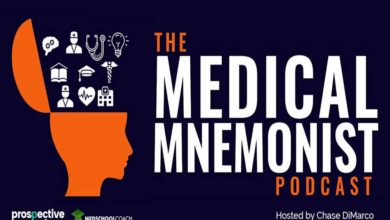Chase DiMarco talks to Camille Roney, an academic coach and teacher at Non-Trad Accelerator for non-traditional students. Camille shares how she raised her GPA from 2.3 to 4.10, practical study tips to increase your productivity, and the power of positive thinking.
- [01:01] What is a Non-Traditional Student
- [02:40] How to Raise your GPA from 2.3 to 4.10
- [05:50] Study Tips to Increase Your Productivity
- [10:02] Effective Speed Reading Tools and Strategies
- [15:20] Testing and Improving your Memory Skills
- [16:50] Memory and Mnemonic Techniques
- [19:10] The Power of Positive Thinking
What is a Non-Traditional Student?
A non-traditional student is someone who’s pursuing college in a non-traditional way. To get a better understanding of this concept, we first need to define a traditional student. When the words “college student” are mentioned, you automatically picture someone aged 18-24 who seamlessly transitioned from high school to college. Furthermore, the typical college student is yet to start their careers and, if they do have a job, it’s probably part-time. So, they basically devote most of their time to classes and other on-campus activities.
In contrast, a non-traditional student is anyone who attends college, contrary to the typical college student. For example, non-traditional students are usually over 24 and boast multiple years of work experience between high school and college. Moreover, they face unique challenges as college students and likely have more responsibilities outside the classroom.
How to Raise your GPA From 2.3 to 4.10
Whether your goal is to improve individual subject scores or earn a 4.0, there are several ways you can succeed. If you’re a non-traditional student with no academic background or study routines, raising your GPA can prove a daunting task. Camille explains that, for the most part, older students assume that their life experience and perceived maturity can guarantee success. Unfortunately, that’s usually not the case. In fact, non-trad students sometimes have to work a little harder than their traditional college counterparts.
Camille believes that the single most important skill any student can master is the ability to invest in themself. If you’re struggling with a particular topic, take online courses and improve your content retention abilities. Train yourself to be more productive and produce high-yield study sessions. Always remember, it’s almost impossible to become an A student overnight. But consistency can guarantee some rewards. So, have a positive attitude towards your studies and implement efficient study techniques to improve your comprehension ability.
Study Tips to Increase your Productivity
For the most part, today’s curriculum barely has time to teach students how to read or stay productive. And as a medical student, you have a lot to cover with what can feel like very little time. So, what can you do to get more done and spend less time doing it? Camille believes before implementing any productivity hack, give yourself some credit. Congratulate yourself for how far you’ve come and how much you’ve been able to achieve. Secondly, admit that the productivity strategies you’ve been implementing so far are not working or need some slight improvements. Lastly, implement a new study technique, practice every day and have a goal in mind.
Studying without goals is never effective. You need to know exactly what you must accomplish during each study session and work towards that goal. For example, if your goal is to cover a particular chapter on Monday, prepare a schedule and plan how you’re going to do it. You could also ask yourself testable questions after every paragraph. This strategy is crucial when improving your comprehension skills and concentration levels.
Connect with Camille via Instagram and check out the Non-Trad Accelerator Website
For more study tips, grab a copy of Read This Before Medical School. Don’t forget to leave a rating! Share your experiences, tips, and suggestions to [email protected]. Or you can directly reach out to Chase on LinkedIn, Twitter, or Instagram. Join the Medical Mnemonist Master Mind Facebook group.
